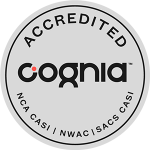The world of homeschooling has experienced a dynamic shift over the past few decades. As learning technology advances, so too has the method and mode of homeschooling. This transformation from traditional paper-based methods to digital platforms has not only made homeschooling more accessible but has also enriched the learning experience. Let’s look at this transformation to understand the evolution of homeschooling from its modest beginnings to its modern digital age.

The Humble Beginnings: Homeschooling in its Infancy
Homeschooling, as an alternative to mainstream schooling, has existed for centuries. In the past, it was often the preferred method, particularly in areas where formal schooling was not accessible. It relied heavily on personal books, one-on-one teaching methods, and handwritten assignments. Resources were limited, and curriculum often had to be created or adapted by the teaching parent or guardian.
The Rise of Organized Homeschooling
By the mid to late 20th century, as the homeschooling community grew, the need for more structured curriculums and resources became evident. Publishers started creating dedicated homeschooling materials, and organizations were founded to support homeschoolers. This era marked the advent of a more organized and systematic approach to homeschooling, yet it was still primarily paper-based.
Enter the Digital Age: The Dawn of Online Homeschooling
The late 1990s and early 2000s saw the internet becoming a household staple. With this came the inception of digital homeschooling platforms. These initial platforms offered digitized textbooks, online assessments, and interactive multimedia content. The transition to pixels had begun.
Modern Homeschooling: A Blend of Tradition and Technology
Today, the digital homeschooling landscape is diverse and robust. Schools like Northgate Academy have transformed the homeschooling environment, providing a blend of synchronous (real-time) and asynchronous (self-paced) online learning opportunities.
Modern online homeschooling offers:
- Interactive Modules: Engaging lessons with animations, videos, and interactive quizzes.
- Global Classrooms: Real-time sessions connecting homeschoolers from different parts of the world.
- Adaptive Learning: AI-driven platforms that adapt content based on the student’s performance and learning pace.
- Diverse Resources: From eBooks to video lessons, webinars to virtual labs, the resources available to homeschoolers are vast and varied.
Challenges & Triumphs of Digital Homeschooling
While the shift to online platforms has expanded possibilities, it has also brought challenges. Not all families have equal access to technology or high-speed internet. Digital platforms have learning curves, and not all digital content suits every learning style.
Yet, the successes are notable. Digital platforms provide flexibility unmatched by traditional methods. They enable access to global resources, real-time feedback, and tailored learning experiences. For families on the move, digital platforms mean consistent schooling regardless of location. For students with special needs, adaptive platforms provide a unique opportunity for customized learning.
What Lies Ahead?

The trajectory of homeschooling suggests a future even more integrated with technology. We can anticipate more immersive experiences, perhaps with virtual or augmented reality. Collaboration tools will likely evolve, allowing for richer global interactions and group projects.
As we reflect on this evolution, one thing remains clear: homeschooling, whether by paper or pixels, is rooted in the dedication to providing a unique, tailored education that meets the individual needs of each student. With every technological advancement, we move one step closer to an educational system that acknowledges and caters to the diverse needs of its learners.
In Conclusion
The transition from paper to pixels in the homeschooling landscape represents more than just a change in method; it signifies an evolution in thought, adaptability, and the endless pursuit of educational excellence. As we look forward to the future, it’s crucial to remember and celebrate the strides made in this dynamic field. To explore how this evolution can benefit your homeschooling journey, consider diving deeper into schools like Northgate Academy that are at the forefront of this educational revolution.
At Northgate Academy, we understand that education is more than just academics. It is about forming the whole person, intellectually, socially, and spiritually. By balancing academic rigor with faith-based learning, we ensure our students are well-equipped for their future endeavors while remaining grounded in their faith. Enroll with Northgate Academy today to experience an education that blends strong academic instruction with a steadfast focus on Christian values.




